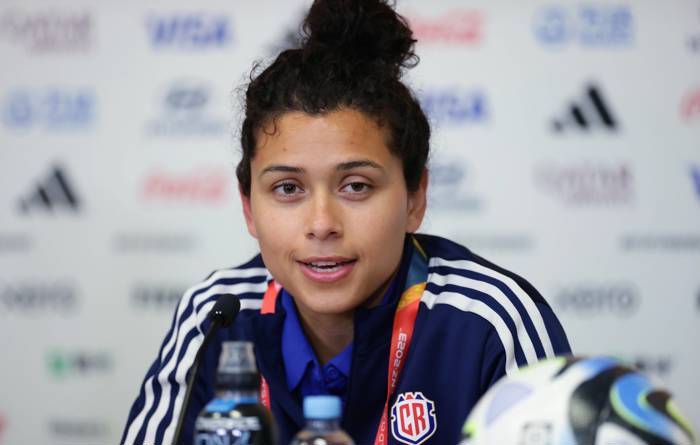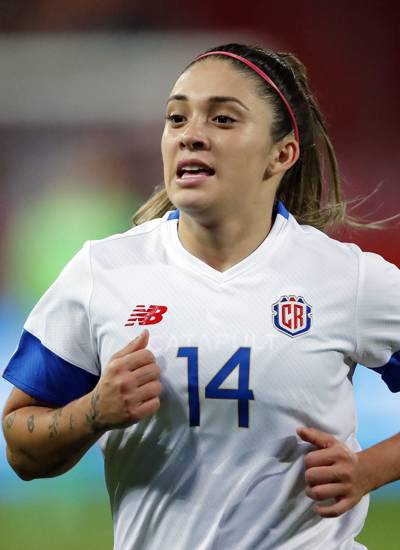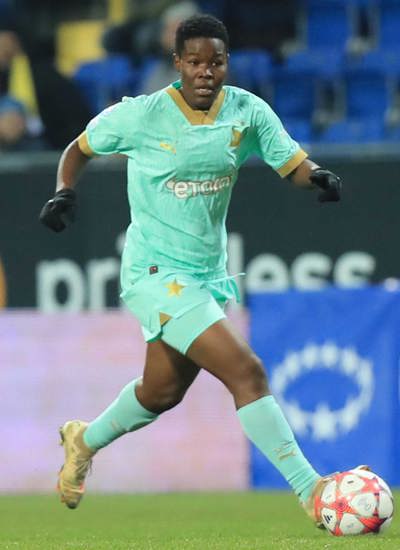
- Raquel ‘Rocky’ Rodriguez is the Costa Rica women’s national team all-time top scorer
- The midfielder talks to FIFPRO about the new four-year agreement signed by ASOJUPRO, which ensures equal conditions for the men's and women's national teams
- A member of FIFPRO’s Global Player Council, Rodriguez also talks about the benefits of the 2023 Women's World Cup
Raquel Rodriguez is synonymous with football in Costa Rica. The 30-year-old has more than 100 caps for the national team and has enjoyed a successful club career, including eight seasons at the highest level in USA’s National Women’s Soccer League (NWSL).
A league champion in 2023 with Portland Thorns and now playing for Angel City, Rodriguez’s influence stretches beyond the pitch: she is also a member of FIFPRO's Global Player Council, where she uses her voice to defend the rights of players worldwide.
Her opinion carries weight when addressing issues of rights, such as those achieved by Costa Rican women footballers in February: thanks to negotiations led by the national union, ASOJUPRO, the women's national team will have the same conditions as the men's team for the next four years of the World Cup process.
This means that the percentage of prize money, travel allowances and travel conditions for women footballers on their way to the 2027 FIFA Women's World Cup will be the same as those enjoyed by the men on their way to the 2026 FIFA World Cup.
"The feeling of justice, personally and also for my team-mates, is what means the most," said Rodriguez, reflecting to FIFPRO on a ground-breaking agreement for the region.
"As people and athletes, it is very important to feel that what we do is valued. If we qualify for the next phase or for a certain tournament or the World Cup and we bring income to the federation, it is only fair that we are recognised for our fair share.
"Symbolically, it is very important that we are given the place we deserve, for which we have fought and for which many women have also fought in the past. And to get to this point where both sides have that maturity, that mutual understanding that dialogue has to happen, that the federation says 'yes, we think this is fair', is even exemplary.
"I don't like to compare men and women because I understand the differences, but when they are so abysmal, one feels injustice. So, I feel satisfaction in knowing that there is a reward for representing the country, the effort we are making is recognised. It's fair for us, it's very important and it brings motivation. In a way, it makes the journey worthwhile.

Relentless work of ASOJUPRO
Rodriguez and Costa Rica's first Women's World Cup was in Canada 2015. The second, last year. Both were like two different worlds – "Day and night!" – in ‘Rocky’s’ words.
"To begin with, we went without any agreement with the federation. We also went believing that things were going to change in Costa Rica after that experience. That happens very often. It's like a comment from Marta [the Brazilian star], who says that, by achieving goals, we players believe that we have already shown that things will change. But it wasn't like that."
It took seven years before Costa Rica women's internationals could be paid more for their efforts: in 2022, the first agreement was signed between ASOJUPRO and the Costa Rican Football Federation, which was valid up until Australia/New Zealand 2023. That agreement laid similar foundations for the agreement reached in February 2024.
"ASOJUPRO has been the best thing that could have happened to football players in Costa Rica. If it weren't for them, we would never have been able to reach that agreement and this one," says Raquel.
Prior to the first document, the players had wanted to win rights on their own.
"We had tried to negotiate through our own channels and with ASOJUPRO we didn't know we were on the same page until we started talking. It was the piece we were looking for and needed. That's what associations exist for; they are our voice. The voice of the collective.
"Once we understood that, we started to talk and that trust was generated that they were going to fight for our rights. And they were very important because that first agreement with the federation was not reached overnight – it took weeks"

Australia/New Zealand 2023, a milestone for women's football worldwide
Thanks to the collective action of more than 150 players, the 2023 Women's World Cup marked a before and after in the history of football by FIFA offering a set of conditions equivalent to the men's World Cups, as well as 110 million USD in prize money, 10 times more than at Canada 2015.
The prize money ensured a base of 30,000 USD for each player. "We saw what it meant to so many players who don't usually get that kind of money," says Rodriguez.
But beyond that income, she was impressed with the travel conditions: "They were incredible. Maybe it's something super basic for any male footballer or for the top women's teams. I know they travel first class. But we never did and we were blown away. My feet didn't swell up – I didn't know that was possible!
"It was a very long trip and I arrived rested. I thought 'if I travel like that, I can get there and train'. We've had trips to China or Europe where we've travelled at very difficult times. And you have to play two or three days later. You have jetlag. Or during the trip to have a healthy, hot dish to eat. And I don't have to look for it before I get on the plane to see what restaurant is available. In the end it's your body that you use to perform and every detail is important. If the rest or nutrition is not good, it's not the same. The World Cup trip was a game changer, as I call it."
“Symbolically, it is very important that we are given the place we deserve, for which we have fought and for which many women have also fought in the past. ”
— by Raquel Rodriguez

Upcoming challenges
Engaged in what is happening in her country domestically, Rodriguez believes that "the million-dollar question" is what the next step should be for women's football to develop in Costa Rica.
"That's what the people involved in women's football are trying to figure out: what we need to do to make the league sustainable and competitive. At the moment there is one team that has withdrawn from the tournament and many others are lowering the players' pay. That's the struggle: how to make sure there is structure and order.”
At national team level, the goal goes beyond a local level and has a global scope.
"The agreement that we signed with the federation provides the same percentages that the men's national team receive, and that is a great step forward.
"Except for teams like the United States and a few others, there are not many that do that.
"However, the amount received from FIFA or Concacaf is not the same, and in the end the money we receive is not the same. This is the next step: that FIFA and tournament organizers offer the same prize money for men and women."


